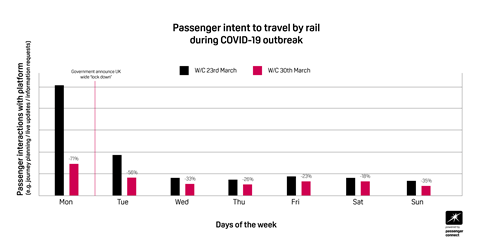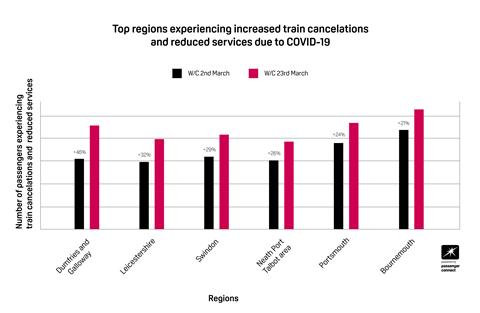
UK: Passenger data systems supplier Zipabout says train operators should revise their emergency timetables based on passenger behaviour and real-time demand data, to ensure their reduced services can meet the needs of key workers during the coronavirus pandemic.

‘The necessary reduction in rail services due to coronavirus has helped protect staff and the industry, as well as preventing the number of unnecessary journeys made by the public’, said co-founder and Chief Product Officer Alex Froom on April 1.
‘However, there are still many people reliant on the public transport network to get to work. By introducing a flexible timetable based on passenger behaviour and real-time demand, operators will be able to continue running reduced services at the same time as serving those key workers who need it most.’
Zipabout observed a significant decrease in passenger interactions following the Prime Minister’s call for people to stop making non-essential travel. However, the reduction in train services has lead to a 25% increase in the number of people unable to find rail services to match their travel needs.
These estimates are based on travel intent data generated by the interactions of more than 150 000 people with Zipabout’s platform, which is used by organisations including National Rail Enquiries, LNER and ScotRail to provide live journey assistance and personalised travel updates.
Zipabout said the regions most affected include Dumfries & Galloway, Leicestershire and Swindon.
Technical Director and co-founder Daniel Chick said ‘these are challenging times for the transport industry, with many operators working round the clock to ensure rail services continue to run. Whilst our platform is able to provide this unique and unprecedented insight into real-time passenger demand, we are working hard to develop new ways to identify and assist key workers through personalised travel updates and end-to-end journey assistance’.



